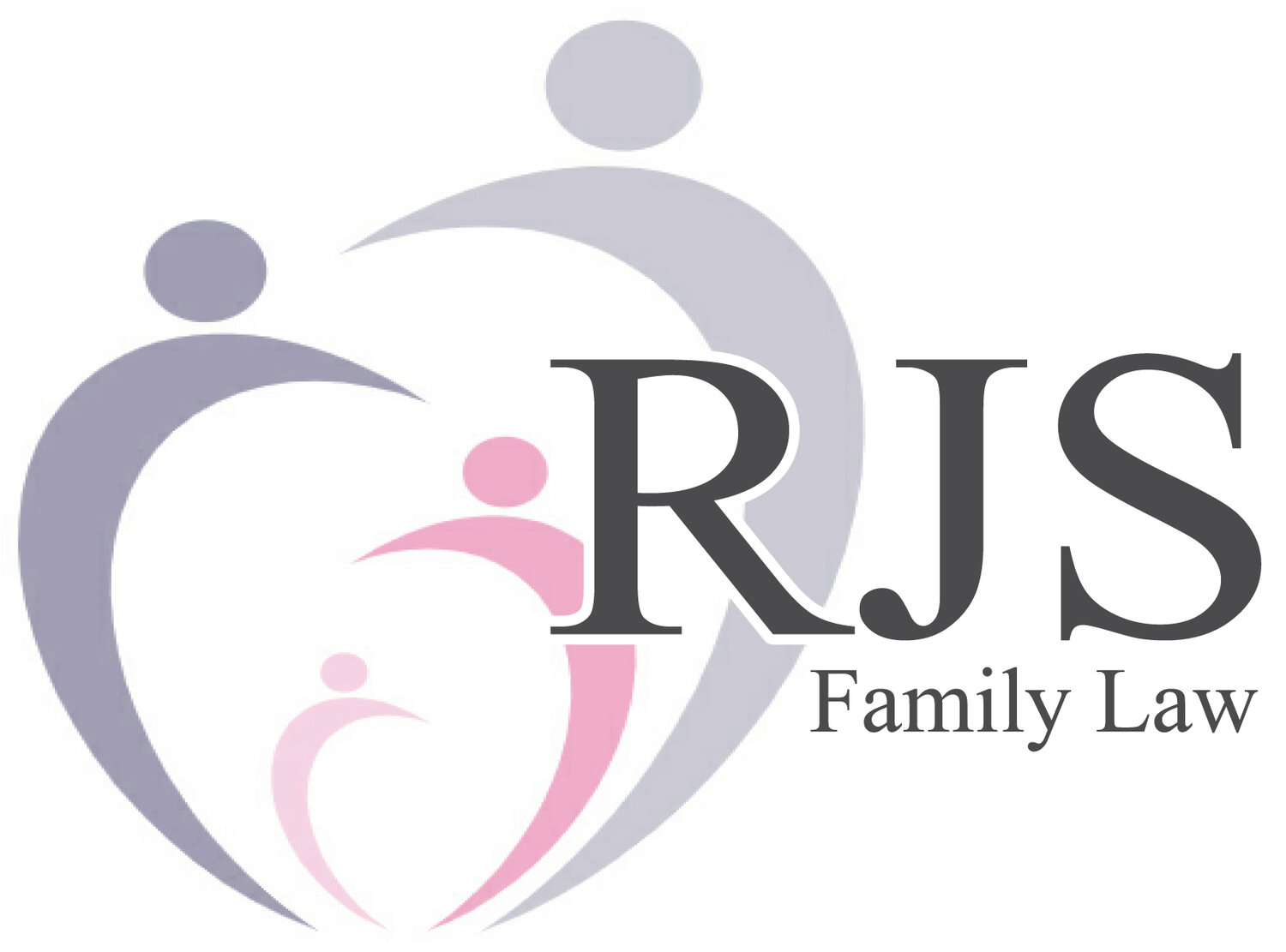
Prenuptial Agreement Solicitors
Secure Your Future with Experienced Prenuptial Agreement Lawyers at RJS Family Law
Although not strictly enforceable under English and Welsh law, a 'Prenuptial Contract' drafted by a qualified prenuptial agreement lawyer can be very persuasive within a court setting. Given the power of family courts to redistribute family property and assets, and the fact that 42% of UK marriages end in divorce, prenuptial agreements are becoming increasingly common in the UK. Our experienced prenuptial agreement solicitors ensure your interests are fully protected.
What is a Prenuptial Agreement?
A prenuptial agreement (often called a ‘prenup’) is a formal contract made between two people before they get married. It sets out how finances, property, and other assets would be divided if the marriage were to break down in the future.
While no one enters into marriage expecting it to fail, a prenuptial agreement can provide clarity and reassurance, helping you both start your marriage with transparency and peace of mind. It can also help prevent lengthy or contentious divorce proceedings, allowing for a quicker and more amicable separation if the worst were to happen.
Key Considerations and Benefits of a Prenuptial Agreement
A prenuptial agreement can be especially valuable if:
one partner has greater wealth or income
if you wish to protect property, inheritance, or business assets owned before marriage
if either of you has children from a previous relationship
A prenup allows you to set out what feels fair to you both, rather than leaving those decisions entirely to the court.
It’s also important to know that no two prenups are the same; yours can cover anything from savings and pensions to business interests and even what happens to pets. While not automatically legally binding in England and Wales, courts do give them significant weight, provided certain safeguards are met. A judge will expect that both parties took independent legal advice, that the agreement is fair and reasonable, and that it meets the needs of any children.
A prenup can help you avoid a default 50/50 split of assets, including those acquired before marriage. If there is any international element to your marriage, it’s also crucial to consider whether an English prenup will be recognised abroad, or whether a separate agreement may be needed. Finally, remember that circumstances change over time, particularly during a long marriage or if you move overseas, so your agreement may need to be reviewed to remain effective.
Who Should Consider Prenuptial Agreements?
Prenuptial agreements can be helpful for many couples, but they are particularly worth considering if:
You have substantial assets or wealth you want to protect.
You own a business or have business interests you would like to keep separate.
You are entering into marriage later in life and have already built up savings, property or investments.
You are expecting a future inheritance or trust fund.
You want to protect the financial interests of children from previous relationships.
You are remarrying and want to protect the assets you’ve already built.
Even if you do not currently have significant assets, a prenup can still help establish fair expectations and prevent misunderstandings in the future.
What do Prenuptial Agreements Include?
A comprehensive prenuptial agreement can cover a wide range of financial matters, such as:
How arrangements for children would be approached, ensuring their needs are prioritised.
What would happen to the family home, including contributions to rent or mortgage payments
How any property, assets, or inheritance brought into the marriage would be treated.
What would happen to pensions and other retirement savings.
How any joint accounts, debts, or items bought together during the marriage (such as cars or furniture) would be managed.
Whether spousal maintenance would be paid, and for how long.
Confidentiality clauses regarding the terms of the agreement.
Circumstances in which the agreement would be reviewed (for example, the birth of children).
Responsibility for the legal costs of preparing the agreement.
Your solicitor will tailor the agreement to your unique circumstances and priorities.
What is Needed for a Prenuptial Agreement?
To prepare a prenuptial agreement, both partners will need to provide and decide on:
A full list of financial assets and liabilities, including:
○ Property and the family home
○ Savings and investments
○ Pensions and retirement funds
○ Business interests
○ Debts or loansHow these should be treated if the marriage ends, for example:
○ Who would keep the family home
○ How contributions to rent or mortgage will be managed
○ What happens to assets acquired during the marriageFor the agreement to carry weight with the court, certain safeguards must also be followed:
It must be drafted by a qualified solicitor.
Both parties must receive independent legal advice from separate solicitors.
There must be full financial disclosure from both parties.
Each party must enter into the agreement willingly and with full understanding of its implications.
Ideally, the agreement should be signed at least 21 days before the wedding.
Following these steps carefully helps ensure the agreement is considered fair, transparent, and properly executed, giving it the best chance of being upheld by the court if it is ever needed
How RJS Family Law Can Help
At RJS Family Law, we work with you to draft a prenuptial agreement that protects your interests and avoids common mistakes. Our experienced lawyers for prenuptial agreement matters will provide clear, practical guidance to ensure your prenuptial agreement is fair and legally sound.
Why Choose RJS Family Law?
Family Law Specialists: With focused expertise in family law, RJS Family Law understands the intricacies of prenuptial agreements.
Personal Approach: You will work with the same friendly, approachable team throughout your matter, with someone always on hand to answer your questions
Comprehensive Service: From initial advice through final agreement completion, we handle every aspect of your separation legal needs.
Free Initial Consultation: Meet the RJS team and discuss your issues without spending a penny
Accessible Location: Visit our easily reached office, avoid city-centre traffic, and enjoy free parking.
How a Prenup Can Provide Security Without Undermining Your Relationship
While some people may view prenuptial agreements as unnecessary, they are, in reality, a practical and forward-thinking way to protect both parties. A well-drafted prenup isn’t about anticipating failure. It’s about creating clarity, reducing uncertainty, and building a strong foundation of trust from the very beginning. At RJS Family Law, we’re here to guide you through the process with sensitivity and expertise, helping you make informed decisions for your future.
Testimonials

For more detailed information or to start your process, contact us today.
FAQs
-
It is advisable to start the prenuptial agreement process at least several months before your wedding. The agreement must be signed at least 28 days before the wedding to be considered valid. Starting the process early ensures that both parties have ample time to review, negotiate, and fully understand the terms of the agreement without feeling pressured. At RJS Family Law, we guide you through the process, ensuring that your agreement is completed well in advance of your wedding day.
-
Yes, a prenuptial agreement can be modified after marriage, but this requires both parties to agree to the changes. The modifications should be documented in a postnuptial agreement, which is also legally binding. Both parties should seek independent legal advice before making any changes to ensure that the new terms are fair and enforceable. RJS Family Law can assist you in drafting and modifying prenuptial agreements to reflect any changes in your circumstances.
-
A prenuptial agreement cannot legally determine child custody or support arrangements, as these matters are decided based on the best interests of the child at the time of separation or divorce. However, the agreement can outline financial arrangements and property division that may indirectly affect the financial stability of both parties, which can be considered in custody and support discussions. At RJS Family Law, we ensure that your prenuptial agreement is comprehensive and complies with all legal requirements, while also considering the broader implications for your family.
-
While prenuptial agreements can offer valuable protection, they’re not right for everyone. Some couples find that discussing a prenup feels unromantic or uncomfortable, especially so close to their wedding. Preparing an agreement also requires time, openness about finances, and legal fees for both parties. It’s important to weigh these considerations carefully. For many couples, the clarity and security a prenup provides outweigh any initial discomfort in creating it, but it’s a personal decision, and there’s no pressure to have one if it doesn’t feel appropriate for your relationship.
-
A prenuptial agreement is not automatically legally binding in England and Wales, but the courts will usually uphold it if certain conditions are met. A prenup could be given little or no weight if, for example, one party was pressured into signing, if full financial disclosure wasn’t given, or if the agreement is considered manifestly unfair at the time of divorce. Having independent legal advice, signing in good time before the wedding, and ensuring the terms are fair will give your agreement the best chance of being upheld by the court.
-
There’s no set expiry date for a prenuptial agreement, it will remain valid indefinitely unless you agree to revoke or replace it. However, the courts expect prenups to be kept up to date. If your circumstances change significantly (for example, the birth of children, major changes to your finances, or one partner stopping work to raise a family), it’s wise to review and update your agreement. Regular reviews help ensure the terms remain fair and reflective of your current situation, which strengthens their enforceability if they’re ever relied upon in the future.
-
Yes. For a prenuptial agreement to carry weight with the court, both parties must take independent legal advice from separate solicitors. This ensures you each fully understand the terms, that the agreement is fair, and that it has the best chance of being upheld if ever relied upon.
-
Not quite. A prenuptial agreement is made before marriage and sets out how assets should be divided if the marriage ends. A cohabitation agreement, on the other hand, is for couples who live together but are not married or in a civil partnership. It records how property, finances, and responsibilities are to be shared during the relationship and what happens if you separate. Both offer valuable protection, but they apply to different circumstances. Our solicitors can advise on which agreement best suits your situation.


